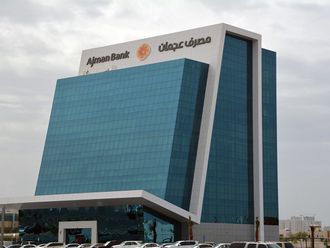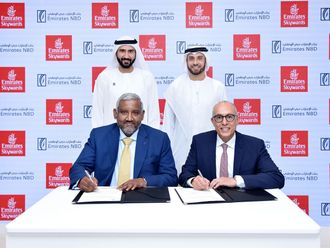
Dubai: Parents in the UAE are not adequately prepared to support the educational ambitions they have for their children, according to new global research by HSBC.
The study looks at how financially prepared parents in the UAE are to fund their child’s education, their academic priorities. The report examines the views of more than 4,500 higher income parents from 15 countries and 300 from the UAE who have at least one child under the age of 23 and have a minimum personal monthly salary Dh20,000.
The research indicates UAE-based parents need to have a sustainable savings plan in order to meet the aspirations they have for their children’s education.
The study shows the UAE-based parents allocate only 31 per cent their funds to this goal; far lower than the global average of 43 per cent. This in spite of four in five (82 per cent) parents in UAE believing that paying for their child’s education is the best investment they can make, much higher than the global average (64 per cent), as well as that of India (73 per cent) and the UK (48 per cent).
“Clearly the study shows parents in the UAE have high expectations of their children, with 86 per cent of parents hoping that their child will study to a postgraduate level. Despite this most of them do not have a clear saving plan to achieve this goal,” said Gifford Nakajima, Regional Head of Wealth Development, Mena, HSBC Bank Middle East Limited.
Lack of preparation
Due to this lack of preparation, virtually all (99 per cent) parents in the country are funding their children’s education fully or partially through their current income, and almost a third use current savings (32 per cent). While funding through investments account for just 2 per cent , specific education plans account for only 1 per cent.
“While there is an evident tendency to fund these costs through current incomes, parents have to realise that they need to move beyond relying on these short-term approaches to funding their child’s education, and they will need to have a concrete saving plan in place in order to sustainably support their long-term aspirations,” said Nakajima.
A key insight from the report was that parents say it takes over eight years to plan for primary, secondary and tertiary level education. HSBC officials said in the specific context of UAE where the prospects of children contributing to their education difficult, parents should plan early
“HSBC helps people plan for this phase of their lives by offering advice and products aimed at addressing customers’ most important priorities. As part of our holistic approach to financial planning, we have identified that education is one of the most important priorities for parents and we have focused on tailoring our products, advice and services to help our customers secure their and their families’ financial futures,” said Ishrat Kiyani, Regional Head of Wealth Sales, Mena HSBC Bank Middle East Limited.












